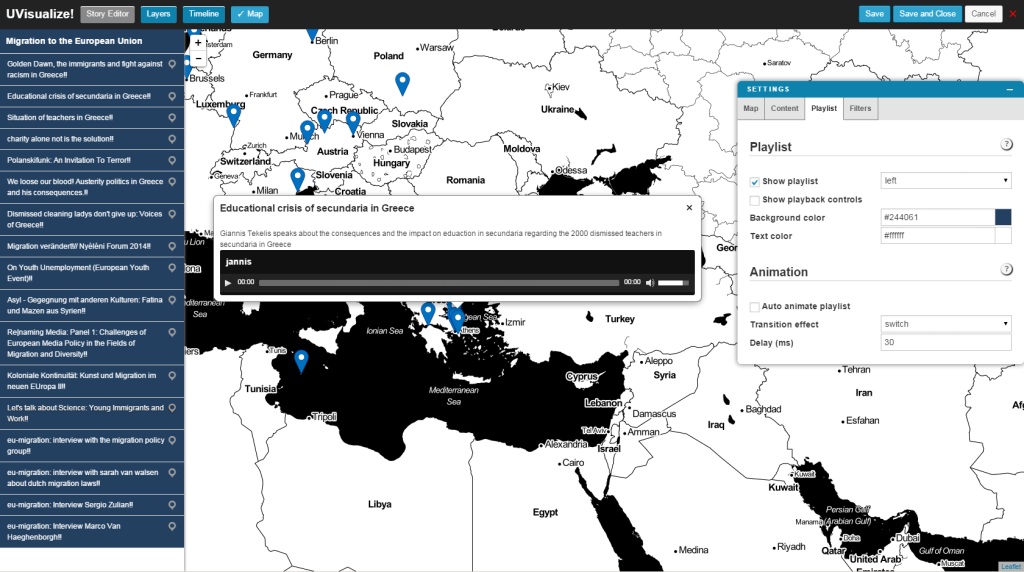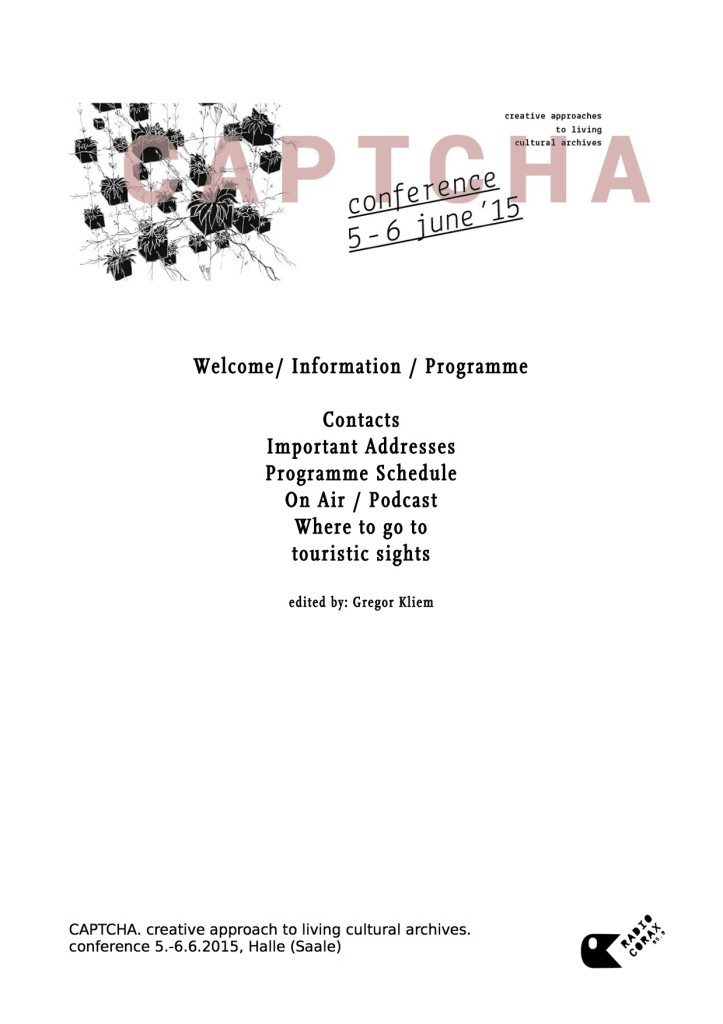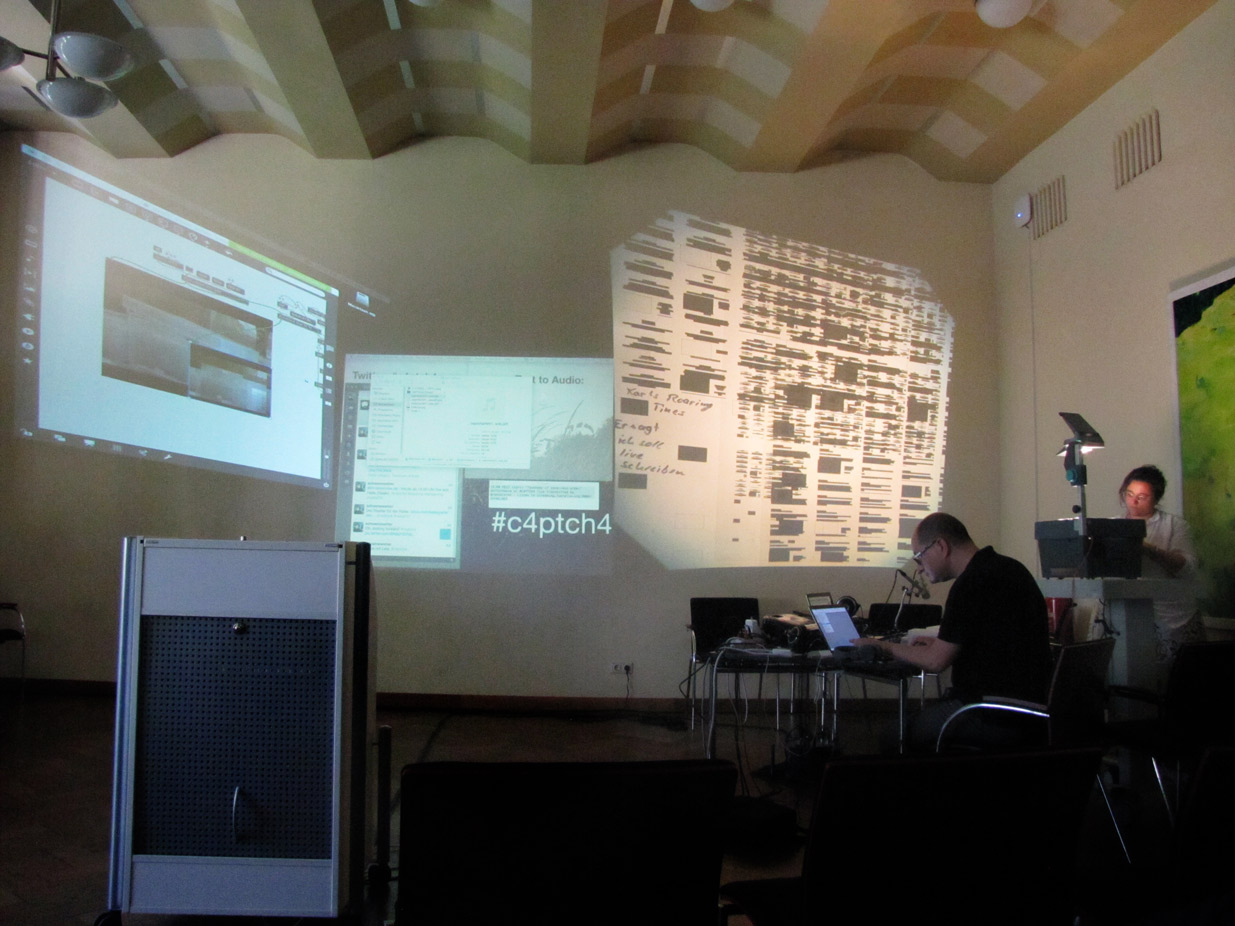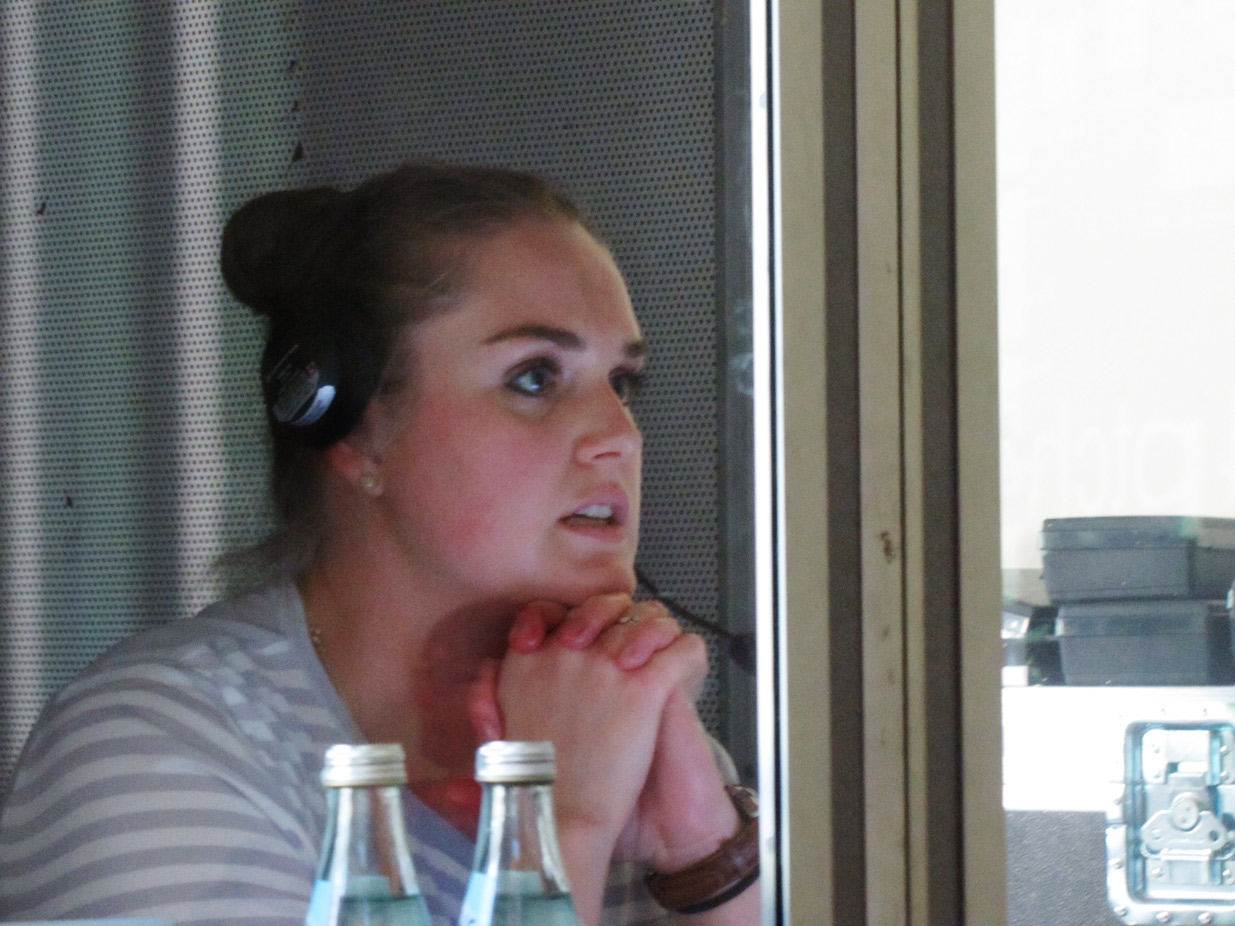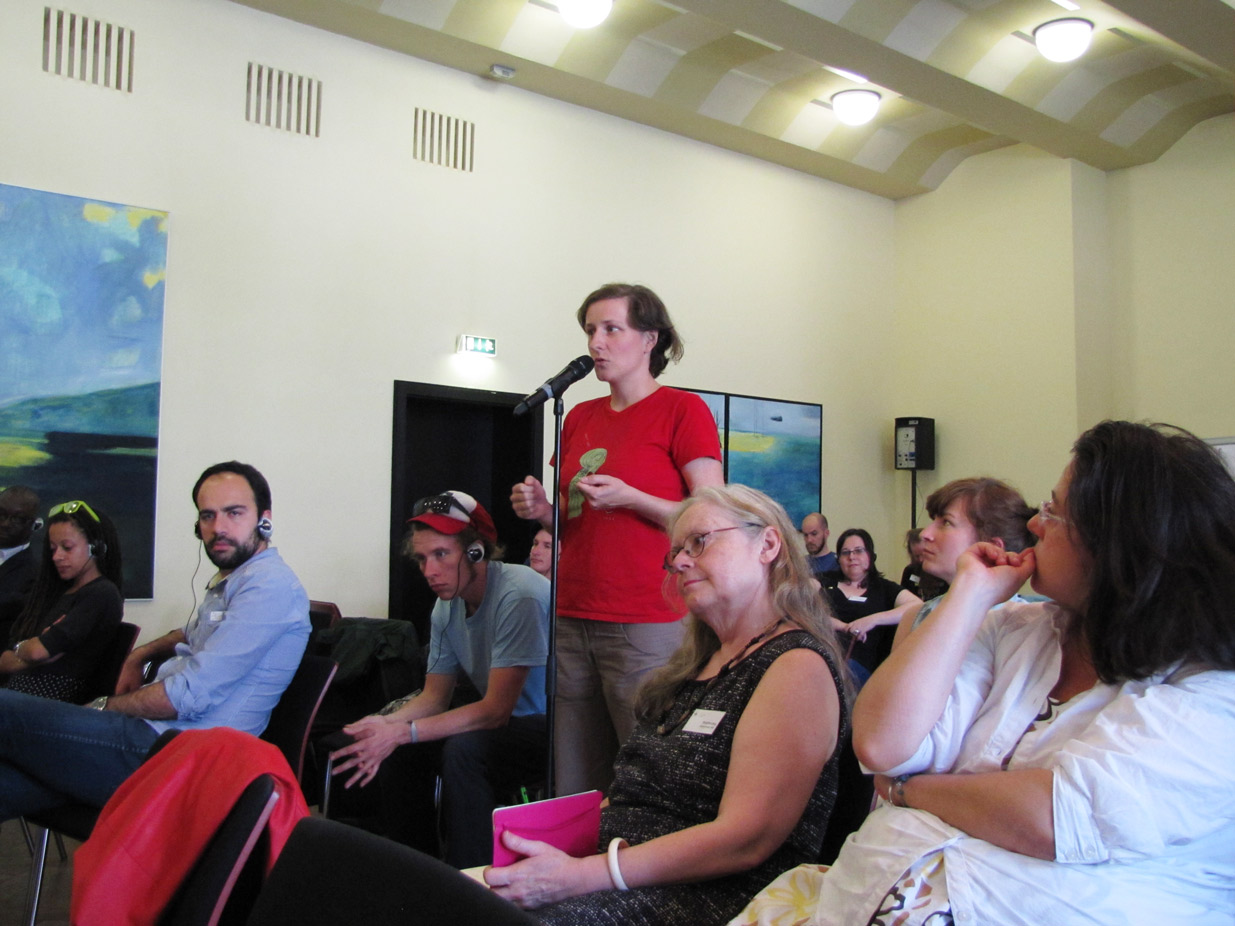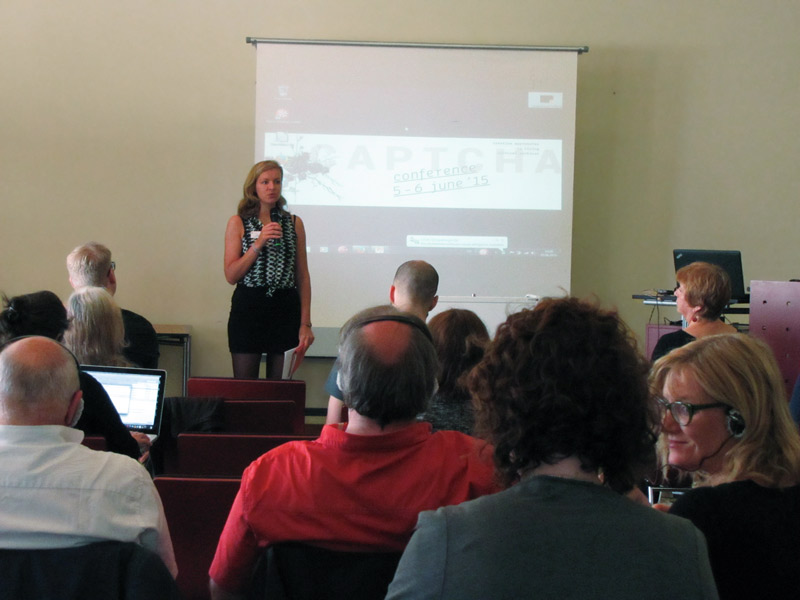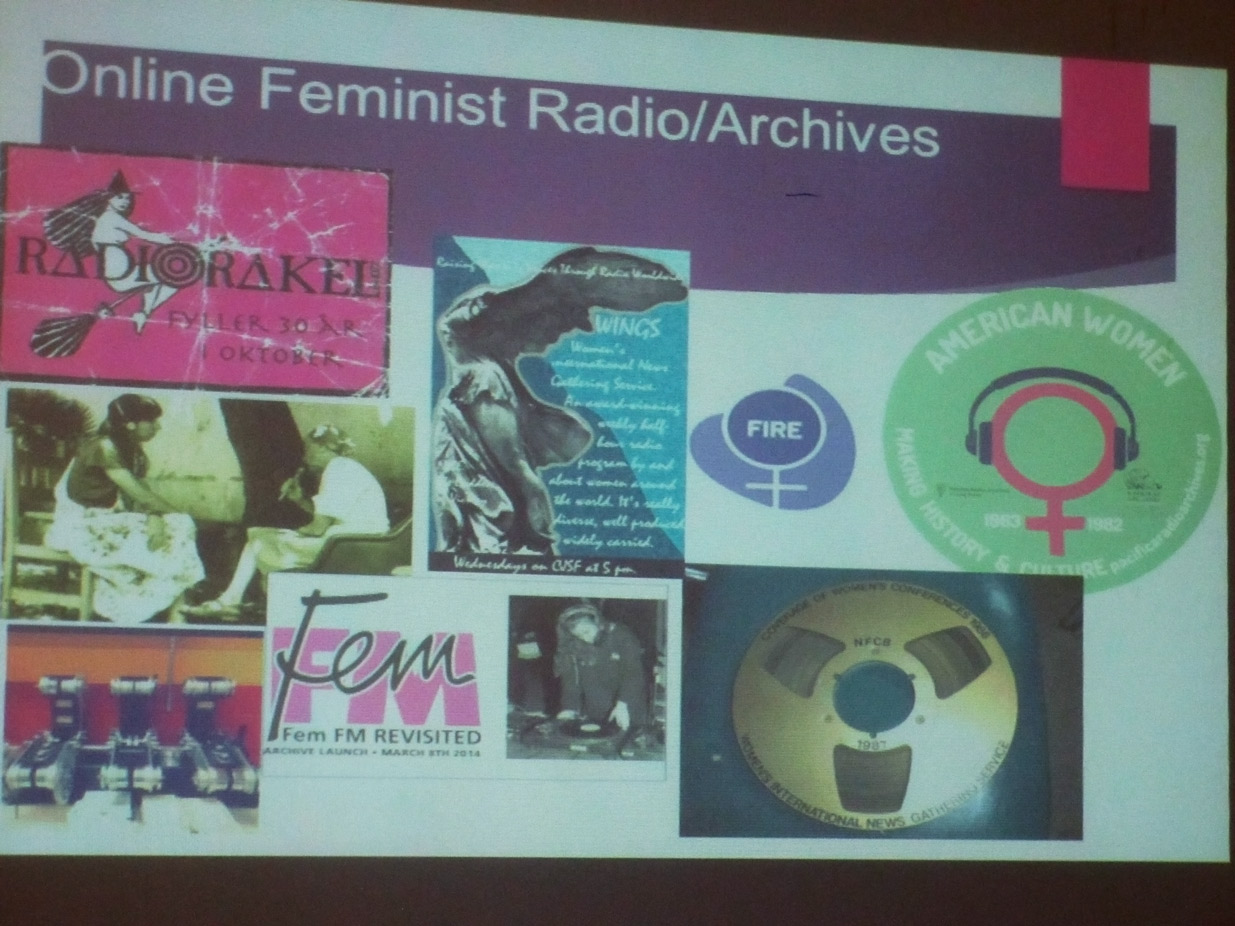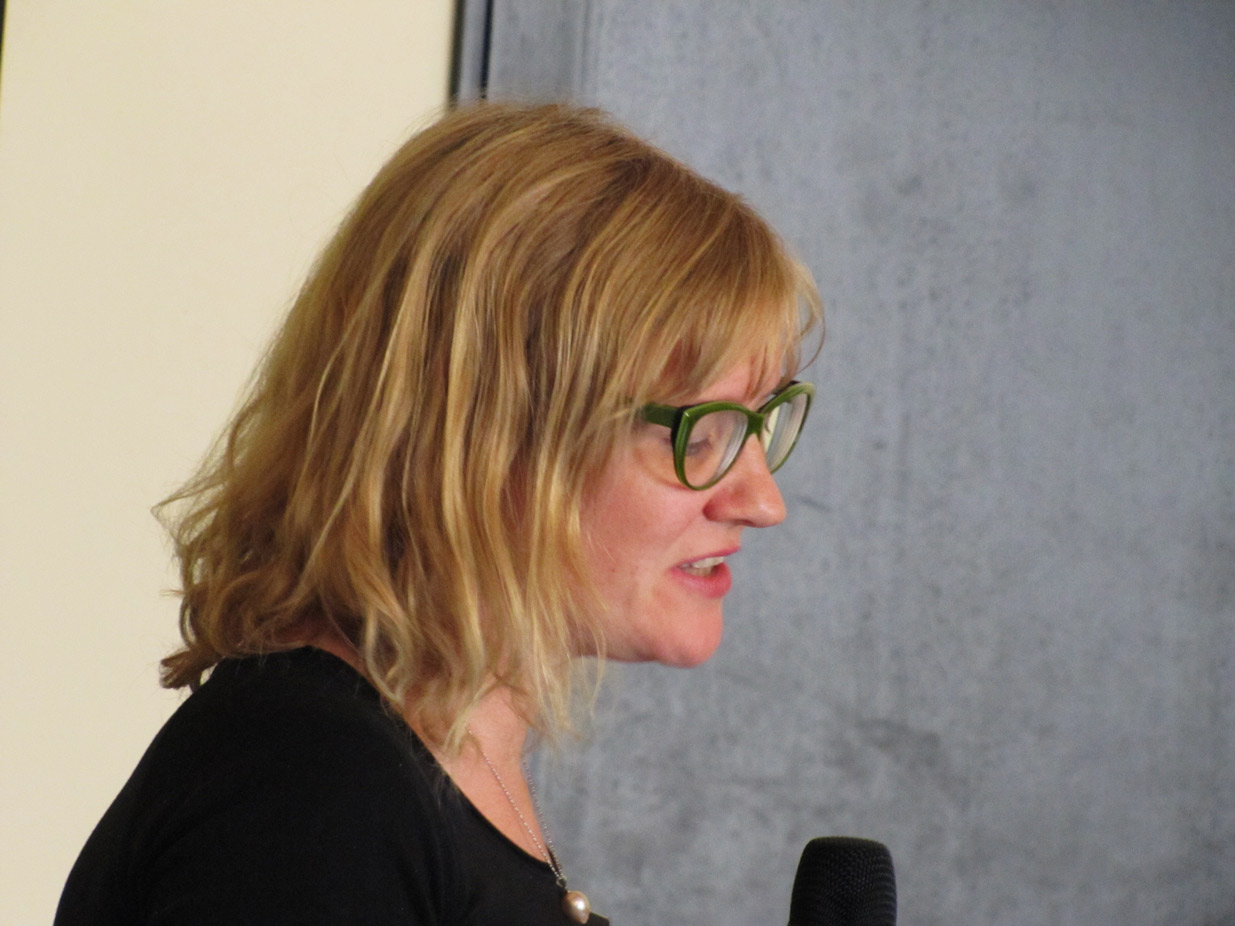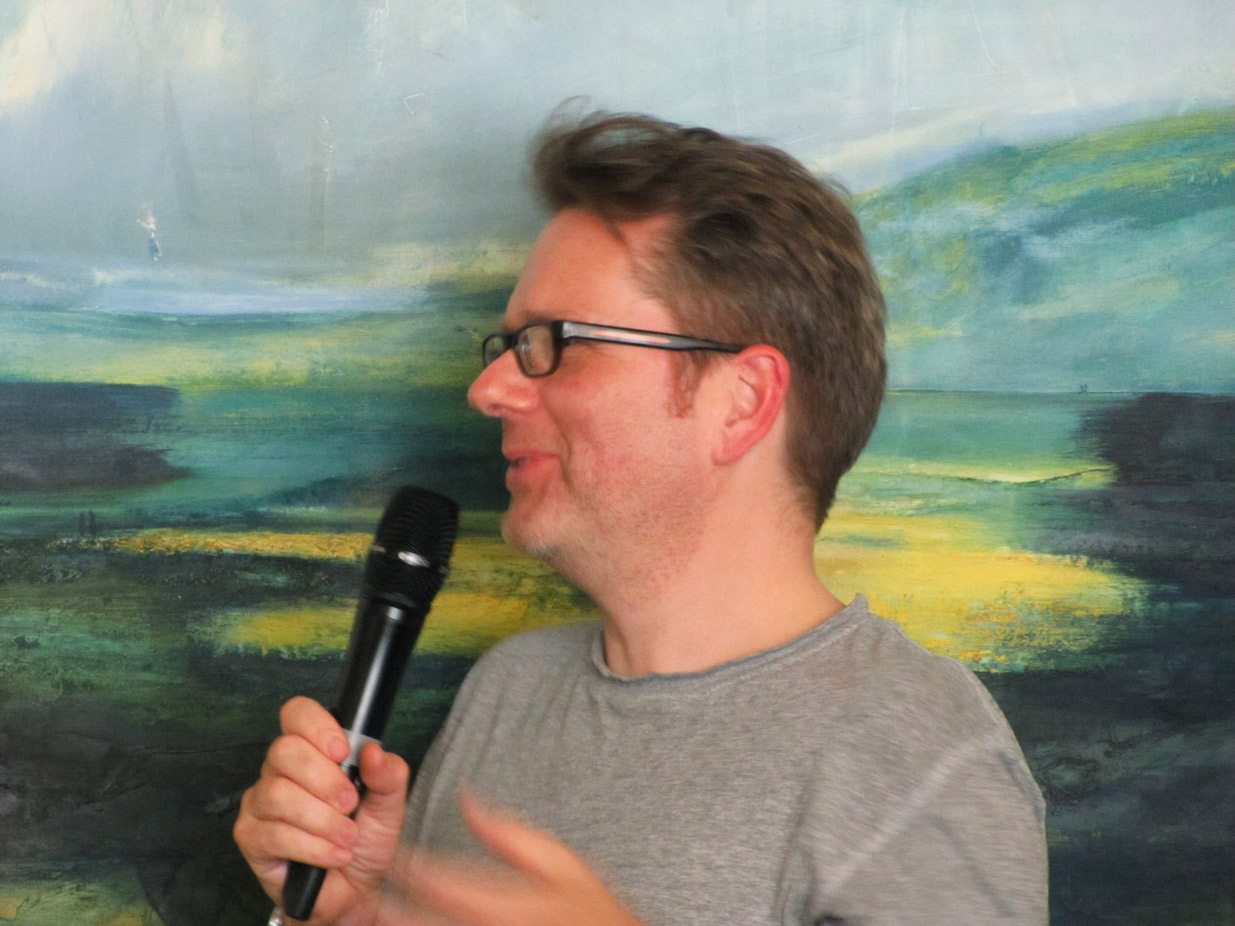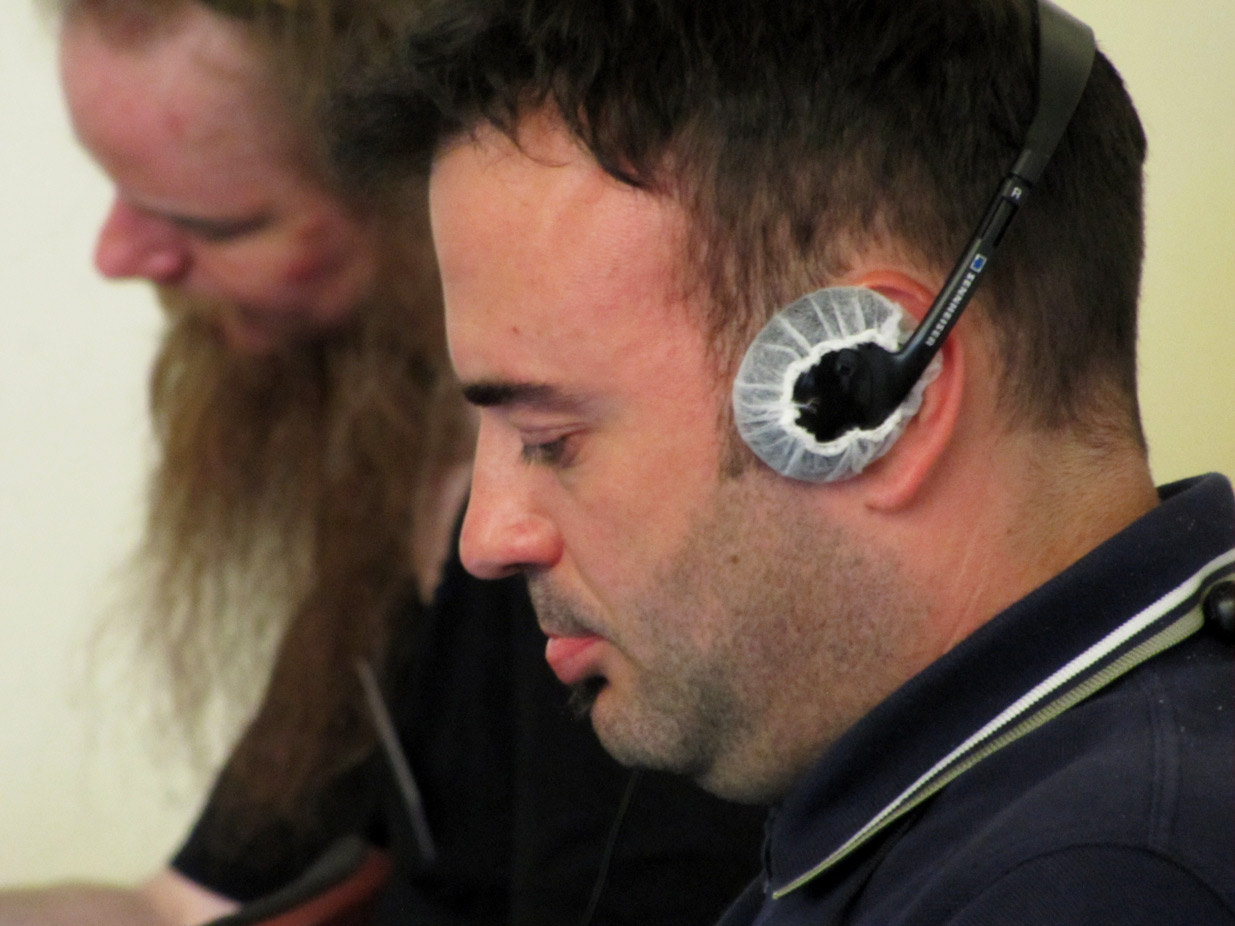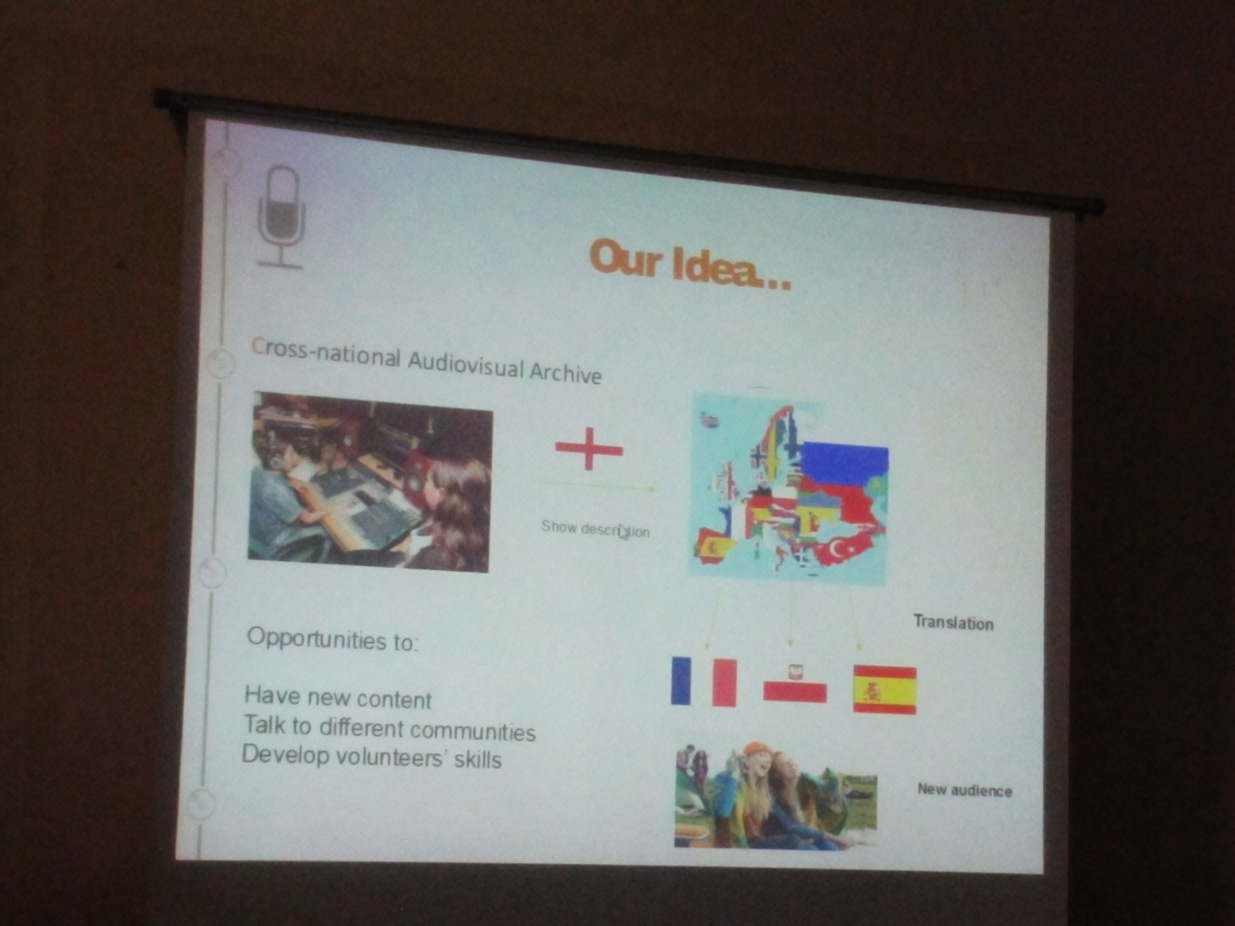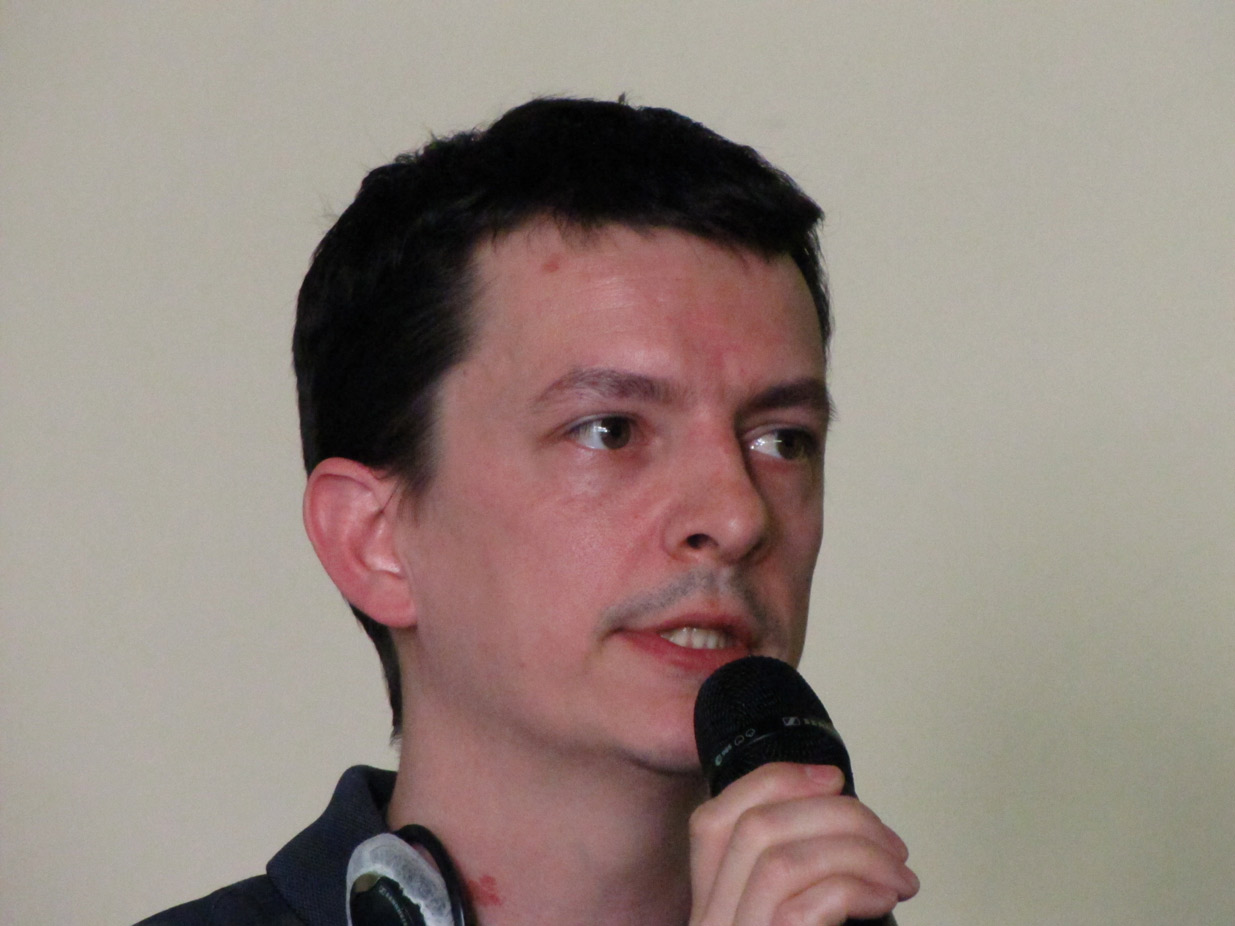„Radio Archives in European Community Media“ am 5. und 6. Juni 2015 bei Radio CORAX in Halle
Ergebniszusammenfassung als Download hier.
Ausgangspunkt
Community Medien dokumentieren und archivieren ihre Beiträge und Sendungen seit Anbeginn ihrer Geschichte oft nur unvollständig. Das Veröffentlichen von Sendungen im Internet wird teilweise schlicht vergessen, als zusätzliche Belastung vertagt oder passiert als Letztes im Radioalltag. Eine geförderte, strukturierte Archivierung wie bei öffentlich-rechtlichen Anstalten gibt es bisher nicht. Es fehlt sowohl an infrastrukturellen als auch personellen Ressourcen, die eine strukturierte Archivierung von Produktionen ermöglichen würde.
Nahezu jedes Community Radio in Europa hat sich vor diesem Hintergrund ganz eigene Strukturen und Tools geschaffen, um Sendeinhalte zu speichern. Produktionen wurden mit mehr oder weniger umfangreichen Metadatensätzen ausgestattet und auf lokalen Servern mit meist ungenügender Publikumsanbindung abgelegt. Einige Radios programmierten eine Automatisierung für den Upload ihrer Sendungen ins Internet oder auf eine Archiv-Festplatte. Einige wenige exemplarische Online-Archive entstanden, in welchen zumindest eine Auswahl an Produktionen nachgehört und zur redaktionellen Weiterbearbeitung verwendet werden kann (z.B. http://www.cba.fro.at oder http://www.freie-radios.net).
Aus dieser Situation ergeben sich vor dem Hintergrund der gegenwärtigen Mediennutzung akute Defizite. Die Studie zu Community Medien Archiven von der Central European University Budapest resümiert, dass die Bereiche „Archiv“ und „Online Publishing“ in nahezu allen Freien Radios (bzw. Community Medien) in Europa den Mediatheken und Online-Angeboten anderer Rundfunk- und Fernsehanstalten weit hinterherhinken (Die Studie wird im September 2015 veröffentlicht). Community Medien nutzen bisher nur einen Bruchteil der potentiellen Chancen, die der immer wichtiger werdende Verbreitungsweg „online“ bietet.
Gleichzeitig geht mit der unstrukturierten Speicherung des Radioprogramms ein Teil Rundfunkgeschichte verloren. Der Klang der freien Radios aus einer über 30-jährigen Geschichte in Deutschland ist derzeit nur partiell rekonstruierbar. Woran werden wir uns in der Zukunft erinnern, wenn wir an Community Medien denken? Michael Nicolai vom AMARC Europe Vorstand verglich die Situation mit in den 1970er Jahren gebauten Neubauten, die heute bereits wieder abgerissen sind. Einzig eine Wiese, eine leere Fläche haben sie zurückgelassen.
Ergebnisse
1 – Der „Online“-Bereich ist ein neues Aufgabenfeld der Community Medien
Auch Community Medien müssen sich mit der Veränderung der medialen Welt auseinandersetzen und Strategien entwickeln, die das Teilen von Produktionen und die Interaktion im Internet fördert. Community Medien müssen anerkennen, dass der Bereich „Online Publishing/Archivierung“ eine ebenso wichtige Funktion freier Medien ist, wie die Bereiche Technik, Administration und Ausbildung. Zur Entwicklung und Umsetzung neuer Online-Strategien ist es wünschenswert, eine personelle Stelle zu schaffen, die den Online Bereich koordiniert. Eine solche Stelle fungiert als Schnittstelle von Sendungsmachenden bzw. Redaktionen mit dem Online-Bereich des Radios. Sie koordiniert die redaktionelle Bearbeitung von Radioproduktionen für das Internet.
Neben der redaktionellen Tätigkeit müssen auch die infrastrukturellen Umbrüche im Medienbereich mitgedacht werden, z.B. wird die Nutzung von Smartphones neben Computern immer wichtiger. Nur wenige Community Medien verfügen heute über Smartphone Apps, die das Auslesen ihres Programms ermöglichen. Auch für den technischen Bereich bedarf es die Entwicklung und Umsetzung eines Konzepts, um sowohl die Webseiten und Archive zeitgemäß gestalten und verwalten zu können, als auch neue Applikationen entwickeln zu können.
2 – Archivmaterial nutzen
Archive sollten als Materialpools aktiv zur Produktion und redaktionellen Erstellung neuer Beiträge und für wissenschaftliche Untersuchungen zur Verfügung stehen. Für den redaktionellen Bereich ist die Entwicklung einer Strategie wünschenswert: zum einen ist die klassische Nutzung von Archivmaterial (für neue Produktionen) denkbar, zum zweiten ist eine erweiterte Nutzung und Verbreitung mittels neuer Visualisierungstools vorstellbar, zum dritten eine Erweiterung der Archive als redaktionelle Arbeitsflächen, die redaktionelle Prozesse, Materialien und Recherchen offenlegen und kollektive Produktionen ermöglichen.
In diesem Zusammenhang kann auch die Bildung eines Archivs der Europäischen Community Medien ins Auge gefasst werden, das als physischer Ort die Grundlage für weiterführende Forschungen, Recherchen, Studium und wissenschaftliche Arbeiten vorhält.
3 – Urheberrecht modernisieren
Bereits die Konferenz Archivia14 in Linz hat gewarnt: “Das kulturelle Erbe im Internet ist in Gefahr!” Die rechtlichen Rahmenbedingungen für Online-Archive, Mediatheken und Repositorien seien veraltet, sowohl auf nationaler als auch europäischer Ebene. Es müssten geeignente rechtliche Rahmenbedingungen und ausreichend finanzielle Mittel für die Digitalisierung, Bewahrung und Zugänglichmachung kultureller Güter geschaffen werden. Schrankenregelungen für nichtkommerzielle und öffentliche Institutionen und ein zu schaffender Digitalisierungsfonds könnten ein erster Lösungsansatz sein. Politik und Gesellschaft müssen sich fit machen für die digitale Zukunft.
4 – Ausbildungselement „Online Publishing“
Aspekte der Beschreibung, Verschlagwortung, Dokumentation und Online-Veröffentlichung von Produktionen sind in der Praxis vieler Community Medien unterrepräsentiert. Vielen Akteuren fehlt es an Know-How wie und wo Beiträge archiviert oder wiederveröffentlicht werden. Den Radiostationen selbst fehlt das Wissen um vorhandene freie Infrastrukturen zum Aufbau eigener Archive. Deshalb sollten medienpädagogische Konzepte und Methoden entwickelt werden bzw. Bildungsangebote geschaffen werden, die den Akteuren die Nutzung dieser neuen Möglichkeiten nahe bringen. Ziel einer solchen Maßnahme ist es, dass die Akteure ihre Online-Archive zukünftig bewusster und damit aktiver nutzen.

